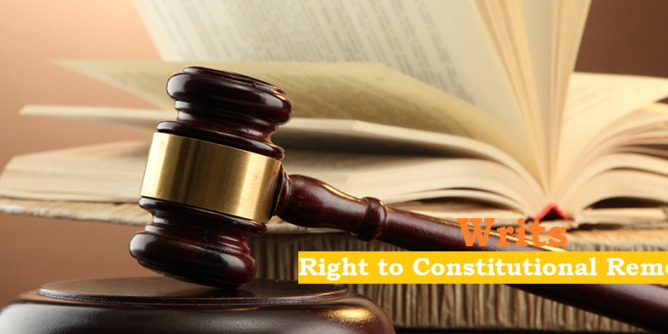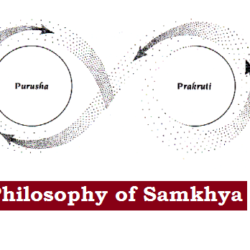
Right to Constitutional Remedies (Art 32):
- Heart and Soul of Constitution
- An effective mechanism for enforcement of Fundamental Rights
- It gives the right to move to Supreme Court (or High Courts) in case of any violation of rights enshrined in Part III (Art 32 and Art 226)
- SC or HCs have power to issue directions, orders or writs for the enforcement of rights
- Rights under Art 32 can’t be suspended except in a national emergency (Art 359)
Writs:
1. Habeas Corpus: ‘to have the body’
It is to protect individual liberty against arbitrary detention. The arrested person should be presented before it. It can also order to set free an arrested person for unlawful arrest.
2. Mandamus: ‘we command’
This writ is issued to a particular public office holder to perform his legal duties that he has failed or refused to do.
3. Prohibition: ‘to forbid’
Issued to lower courts (quasi- judicial as well) to prevent from exceeding its jurisdiction. It is preventive and directs inactivity. (‘Stay’)
4. Certiorari: ‘to be certified’
Issued to lower courts to transfer a matter pending before it to itself.
It is preventive as well as curative.
5. Quo Warranto: ‘what’s your authority’
Issued to a person to restrict him from holding office if he is not entitled to hold
Supreme Court can issue writs only for enforcement of fundamental rights (Art 32) whereas High Courts can issue writs for enforcement of fundamental rights as well as for any other purpose (Though discretionary Art 226).

 Home
Home Syllabus
Syllabus Contact Us
Contact Us








